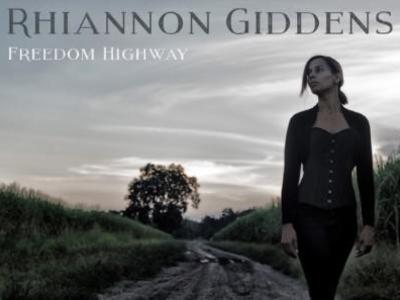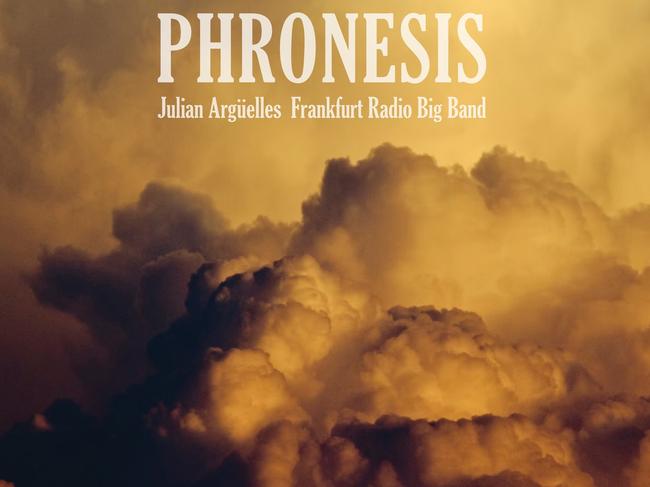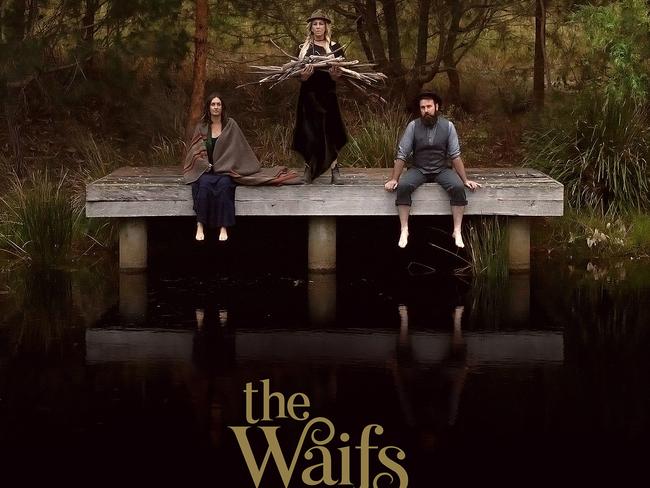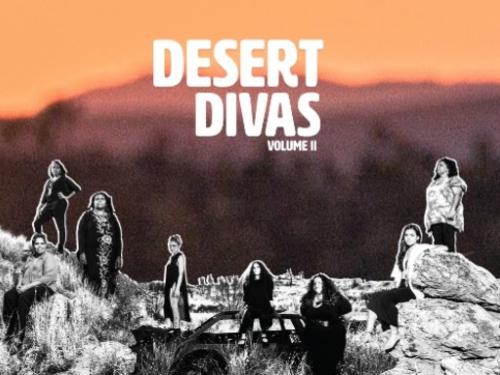Reviews: Jamiroquai, Rhiannon Giddens, Phronesis, Waifs
It’s unmistakably him, but has Jay Kay stuck to his rule of producing ‘all killer, no filler’?

POP/DANCE
Automaton
Jamiroquai
EMI
3.5 stars

Few who listened to 2010’s Rock Dust Light Star, Jamiroquai’s seventh album, could have predicted it would herald six years of silence from the British group, although some rusted-on fans maintain the warning signs were there. The album’s funk-rock leanings were the latest — some would say terminal — departure from the group’s socially aware grooves that first emerged on 1993 debut album Emergency on Planet Earth. Add frontman Jay Kay’s admission that he was growing “tired of the business”, and it appeared the band that had led the emerging acid jazz movement in the 90s alongside Brand New Heavies and Incognito had run its course. To be fair, 2010 was, to reference a track from 1994’s Return of the Space Cowboy album, light years away from Stuart Zender’s snappy bass contributions of the mid-90s. By the time 2001’s A Funk Odyssey dropped, line-up changes and commercial success had influenced the group’s output. With heavy nods to disco and funk, singles Little L and Love Foolosophy, with their slick video clips, did well but reinforced a growing divide between Jamiroquai’s urban roots and a more pop-tinged sound. The glorious Seven Days in Sunny June from sixth album Dynamite (2005) was the last memorable hit, before Rock Dust Light Star came, and quickly went. So the giddiness that has greeted Jamiroquai’s re-emergence has more than a little nostalgia attached to it. The “cat in the hat” is back and, pleasingly, the eighth album isn’t half bad. Written and produced by Kay and keyboardist Matt Johnson, Automaton draws inspiration from “the rise of artificial intelligence and technology”. It’s a futuristic aesthetic immediately apparent on the title track, with its intergalactic crunch and intro reminiscent of Giorgio Moroder. While Kay’s inimitable voice has remained front and centre, it has always been the band, in whatever formation, that has been the driving force behind the most memorable jams. It’s no different on Automaton. Paul Turner’s bass work is sublime, while Rob Harris’s crisp guitar shines on second single Cloud 9 in all its smooth, sunny, fuzzy synth and disco glory. Speaking of disco, there’s strings aplenty and eerier synth stabs on opener Shake It On, while Something About You is the album standout, blending a killer bassline with chugging beat and Kay’s lamenting of love lost. Vitamin challenges for top spot, though, its urgent beat, fuzzy bass, winding sax and sublime keys line towards the end making it a moody little number. Dr Buzz and its theme of racial inequality in the US is a return to social commentary for a group that brought us Too Young to Die. Kay has said in early press, “If you hear our stuff, you always know it’s me.” Automaton backs this up. It’s unmistakably Jamiroquai, but it’s no Travelling Without Moving and, despite Kay’s rule to produce “all killer, no filler”, a few tracks fall flat. Ultimately, though, it’s a solid effort that, while nostalgic, induces a good case of the feels.
Tim McNamara
*

AMERICANA
Freedom Highway
Rhiannon Giddens
Nonesuch/Warner
4 stars
The solo career of Rhiannon Giddens, late of the Carolina Chocolate Drops, takes another step forward with Freedom Highway. Whereas 2015’s well-received Tomorrow is My Turn included only one original, all but three tracks on the singer’s second release are self or co-composed. Suggesting that the highlights of a thematic set predicated on African-American history are the cover songs casts no aspersions on the quality of Giddens’ writing, since the numbers in question are outstanding renditions of classics forged during the fervour of the civil rights campaign. An expansive take of the title track captures the heart, passion and clamour of a Staple Singers’ anthem sparked by the eventful mid-1960s freedom march from Selma to Montgomery. Giddens’ rendition of Richard Farina’s Birmingham Sunday, in which the late-great songwriter noted, “the choirs kept singing of freedom”, is equally soulful and moving. The singer’s bluesy original At the Purchaser’s Option with its stirringly defiant chorus (“You can take my body, you can take my bones / You can take my blood, but not my soul”) compares favourably with the guitar-fingerpicked cover of Mississippi John Hurt’s The Angels Laid Him Away. Another of Giddens’ excellent songs, Julie, works well with banjo and fiddle. Tasty brass stabs, electric guitar breaks and fills and a subdued rap add modern resonance to Better Get It Right the First Time — a reminder that the streets of black America still burn. Baby Boy finishes with an impressive vocal round and three-part female harmony.
Tony Hillier
*

JAZZ
The Behemoth
Phronesis
Edition
4 stars
Following six acclaimed albums, the European piano trio Phronesis has combined with the 14-piece Frankfurt Radio Big Band to record 10 originals commissioned for its 10th anniversary. Although good use is made of the big band, providing colour and richness, there are enough trio passages to satisfy fans of the original Phronesis: pianist Ivo Neame, bassist Jasper Hoiby and Anton Eger on drums. Julian Arguelles arranged and conducted these tracks and provides an up-tempo, driving tenor sax solo in Urban Control, a piece by Eger. Intro to Urban Control begins with solo piano and adds trumpet, bass and drums in a rhythmic uptake. Another Eger composition, Herne Hill, begins with abstract piano phrases, soon joined by the ensemble to continue with strong rhythmic propulsion. Martin Scales contributes several swinging guitar solos, notably in Hoiby’s composition Happy Notes, while the infrequently heard bass trumpet plays eloquently in Charm Defensive. Pianist Neame is continuously active in the ensemble — together with bassist Hoiby and Eger on drums — and delivers several smart solos, notably in OK Chorale and Phraternal, where Tony Latkos adds a constructive tenor passage. There is extensive piano work in Hoiby’s Untitled #1, plus an elongated guitar sequence, travelling quickly, from Scales. Across its six albums Phronesis has developed a bold and instantly recognisable sound, performing widely across Europe and in many festivals from Morocco to Brazil and from Australia to North America. This new album, with its expanded world of sound, provides a new light on the trio’s timeless music, showcasing the extraordinary ability of three superlative musicians.
John McBeath
*

FOLK/POP
Ironbark
The Waifs
Jarrah/MGM
4 stars
Twenty-five years into their career, the Waifs have crafted a double album that comes closest to capturing the heartwarming charm they exude in concert. The quality may not quite last the distance for the full 25 tracks, but Ironbark contains more great moments than they have gathered in one collection at any point previously.
Recorded in the kitchen of Josh Cunningham’s house near Moruya on the NSW south coast, Ironbark is filled with the joy of making music for its own sake.
Cunningham, Donna Simpson and Vikki Thorn and their longstanding auxiliary Waifs Ben Franz and David MacDonald move between folk, blues and country with ease, the slapdash approach building the image of them simply taking turns around the table sharing a musical dialogue.
The title track opens with one verse from each of the trio. In less than two minutes their beautiful harmonies allow them to set the musical template, while their strong Australian accents on the lead vocals make obvious their origins. The folk tradition is carried in the powerful ballads Dirty Little Bird and Syria, their emerging country/Americana influence is demonstrated to great effect on Not the Lonely, while their infectious pop smarts are on display on Something’s Coming. In this already impressive company, Cunningham delivers a couple of solo moments that all but steal the show. Song for Jacqueline is a gorgeous love song to his wife, Jackie, and The Shack is a spoken-word piece recounting his idyllic childhood in a one-room dwelling.
Polly Coufos
*

FOLK
Desert Divas Volume 2
Various artists
Music NT
4 stars
Music NT’s Desert Divas and Sista Sound program has revealed through several years an extraordinary depth of female indigenous musical talent in much of northern Australia, with the latest recorded output showing off the skills of another eight outstanding young women. Not all are unknown — Eleanor Dixon’s family band, Rayella, has kicked serious goals, but she wanted to be involved to explore her individual songwriting talents. Each of the eight — Dixon and Jillian Moody from Barkly, Mandy Garling, Kiriz Oliver and Shana Ray from Darwin, and Bronwyn Stuart, Cassandra Williams and Rita Tomlins from Alice Springs — was paired with a female mentor whose job was not to lay down rules but to help craft and polish her original song. These guides included Nai Palm, Leah Flanagan, Dallas Frasca and Ursula Yovich. Recording sessions were all-women affairs at the Central Australian Aboriginal Media Association studio in Alice Springs, with producer Anna Laverty (Courtney Barnett, Nick Cave and the Bad Seeds, Florence and the Machine and much more) and musical director Steph Harrison, an Alice local, in charge. Styles vary across the album, from brooding (Dixon’s My Spirit is Free is a standout) to country rock (Stuart’s Me and My Guitar can only make you smile) and pop; but, despite that, there’s a sonic coherence. Or perhaps it’s just that outstanding songs, sung with passion and art (and, in several cases, exquisite harmonies), will always soar.
Stephen Fitzpatrick



To join the conversation, please log in. Don't have an account? Register
Join the conversation, you are commenting as Logout